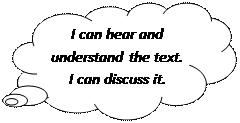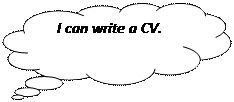 |
|
АкушерствоАнатомияАнестезиологияВакцинопрофилактикаВалеологияВетеринарияГигиенаЗаболеванияИммунологияКардиологияНеврологияНефрологияОнкологияОториноларингологияОфтальмологияПаразитологияПедиатрияПервая помощьПсихиатрияПульмонологияРеанимацияРевматологияСтоматологияТерапияТоксикологияТравматологияУрологияФармакологияФармацевтикаФизиотерапияФтизиатрияХирургияЭндокринологияЭпидемиология |
ACTIVE VOCABULARY OF THE TEXT. prevention [ prɪˈvenʃən] профилактика treatment лечение maxillofacial
Dentistry is widely considered important for overall health. Dental treatment is carried out by the dental team, which often consists of a dentist and dental auxiliaries (dental assistants, dental hygienists, dental technicians, and dental therapists). Most dentists work in private practices (primary care), although some work in hospitals (secondary care), institutions (prisons, armed forces bases, etc.). The history of dentistry is almost as ancient as the history of humanity and civilization, with the earliest evidence dating from 7000BC. It is thought that dental surgery was the first specialization from medicine. Ancient Greek scholars Hippocrates and Aristotle wrote about dentistry, including the eruption pattern of teeth, treating decayed teeth and gum disease, extracting teeth with forceps, and using wires to stabilize loose teeth and fractured jaws. All dentists in the United States undergo at least three years of undergraduate studies, but nearly all complete a bachelors degree. This schooling is followed by four years of dental school to qualify as a "Doctor of Dental Surgery" (DDS) or "Doctor of Dental Medicine" (DMD). Dentists need to complete additional qualifications or continuing education to carry out more complex treatments such as sedation, oral and maxillofacial surgery, and dental implants.
Dentists also encourage prevention of oral diseases through proper hygiene and regular, twice yearly, checkups for professional cleaning and evaluation. Conditions in the oral cavity may be indicative of systemic diseases such as osteoporosis, diabetes, or cancer. Summary: Dentistry is the study, diagnosis, prevention, and treatment of diseases, disorders and conditions of the oral cavity. Specialists who study dentistry are called dentists.
Exercise 12: Answer the following questions: 1. What does dentistry study? 2. What does dentist team consist of? 3. Where can dentists work? 4. What can you tell us about the history of dentistry? 5. How long must dentists study? 6. What procedures and treatments can dentists do? 7. What can prescribe these specialists? 8. How often should we check up our teeth? 9. Which diseases can be caused by the conditions in the oral activity?
Exercise 13: Prepare your own report about the profession of a dentist.
Exercise 14: Listen to the texts http://tarat-tatyana.podomatic.com/entry/2013-04-23T09_42_33-07_00 and do the following tasks: 1.1. Put the number in the order you have heard from the tape. 1. At the veterinary clinic 2. At a pharmacy 3. At a hospital 4. At the dentist 5. At the doctor's office
1.2. Choose the right variant:
a) a month ago b) a week ago c) over a year ago d) three months ago 2) What problem does the patient have? a) cavity b) loose tooth c) caries d) gum disease 3) What animal did the woman bring to the veterinary clinic? a) a cat b) a dog c) a hamster d) a parrot 4) What has happened to the animal? a) it chocked (to chock – подавиться) b) it had a deep cut с) it had a fever d) it lost its weight 5) What did the customer complain of at the chemist’s shop? a) nausea b) stomachache c) runny nose
6) How long had the patient had a high temperature? a) over week b) for two weeks c) for a week d) for a month 7) What did the doctor give the prescription for? a) for antidepressants b) for injections c) for antibiotics d) for sedatives
Дата добавления: 2015-02-05 | Просмотры: 1106 | Нарушение авторских прав |
 Dentistry is the study, diagnosis, prevention, and treatment of diseases, disorders and conditions of the oral cavity, especially the teeth, and to an extent related conditions in the maxillofacial (jaws and face) area. Dentistry can be considered a branch of medicine as a whole, although it is also concerned with cosmetics.
Dentistry is the study, diagnosis, prevention, and treatment of diseases, disorders and conditions of the oral cavity, especially the teeth, and to an extent related conditions in the maxillofacial (jaws and face) area. Dentistry can be considered a branch of medicine as a whole, although it is also concerned with cosmetics. By nature of their general training they can carry out the majority of dental treatments such as restorative (fillings, crowns, bridges), prosthetic (dentures), endodontic (root canal) therapy, periodontal (gum) therapy, and extraction of teeth, as well as performing examinations, radiographs (x-rays) and diagnosis. Dentists can also prescribe medications such as antibiotics, sedatives, and any other drugs used in patient management.
By nature of their general training they can carry out the majority of dental treatments such as restorative (fillings, crowns, bridges), prosthetic (dentures), endodontic (root canal) therapy, periodontal (gum) therapy, and extraction of teeth, as well as performing examinations, radiographs (x-rays) and diagnosis. Dentists can also prescribe medications such as antibiotics, sedatives, and any other drugs used in patient management.


 1) When has the patient had your teeth checked last time?
1) When has the patient had your teeth checked last time? d) sore throat
d) sore throat
